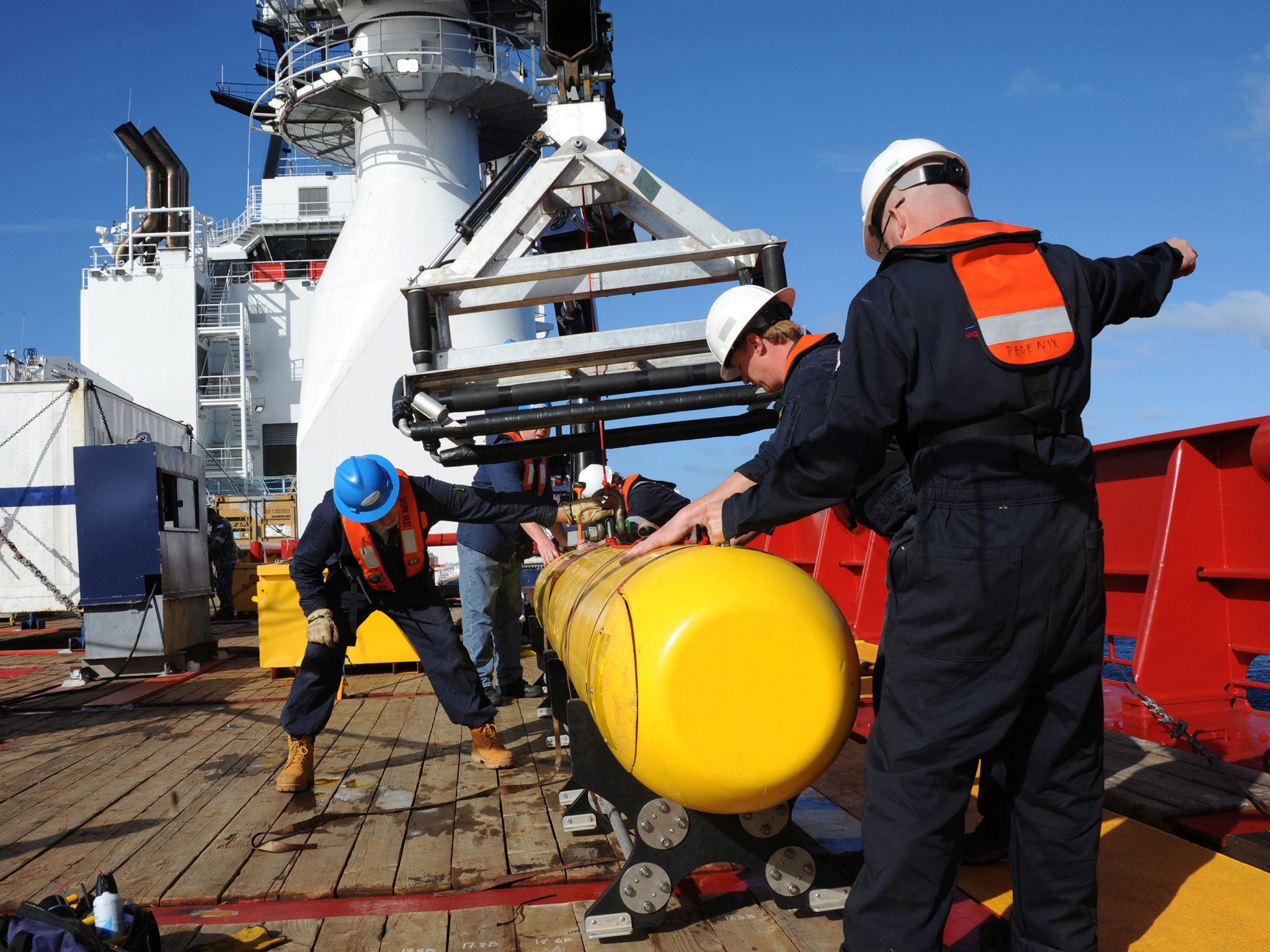Malaysia Airlines flight MH370: Submarines deployed after large oil slick discovered in Indian Ocean search zone
As authorities analyse new oil slick find, unmanned submersible vehicle will map ocean floor

Your support helps us to tell the story
From reproductive rights to climate change to Big Tech, The Independent is on the ground when the story is developing. Whether it's investigating the financials of Elon Musk's pro-Trump PAC or producing our latest documentary, 'The A Word', which shines a light on the American women fighting for reproductive rights, we know how important it is to parse out the facts from the messaging.
At such a critical moment in US history, we need reporters on the ground. Your donation allows us to keep sending journalists to speak to both sides of the story.
The Independent is trusted by Americans across the entire political spectrum. And unlike many other quality news outlets, we choose not to lock Americans out of our reporting and analysis with paywalls. We believe quality journalism should be available to everyone, paid for by those who can afford it.
Your support makes all the difference.The search for missing Malaysia Airlines flight MH370 will go underwater for the first time, it has been announced, as authorities investigate the few remaining clues they have to locate the plane.
With the jet’s “black box” flight recorders apparently having fallen silent, an unmanned submersible vehicle will now be sent down to map the bottom of the ocean in a painstaking process that nonetheless represents the best hopes of finding any wreckage.
Today it was also revealed that a large oil slick has been discovered in the approximate search area of the southern Indian Ocean, which does not appear to have come from any nearby ships.
The oil is a rare lead that will be investigated thoroughly, those leading the search said – but comes after more than a month in which not a single object found on the surface has been positively linked to the missing Boeing 777.
Speaking about the decision to dive down towards the approximate location of previously-detected “pings” – believed to be from black boxes – Australian search orchestrator Angus Houston said: “We haven't had a single detection in six days, so I guess it's time to go underwater.”
He said the Bluefin 21 autonomous submersible would use sonar to create a high-resolution, three-dimensional map of the ocean floor some 4,500 metres (15,000 feet) down.
But it will be a painfully slow process. Each 24-hour mission will include four hours to dive and resurface and four hours to analyse data, leaving 16 hours in which the vehicle will cover just 40 square kilometres.
Houston said that while the “pings” had been a significant lead in allowing the search area to be greatly reduced, the public should not underestimate the scale of the challenge recovery teams face.
“This is an area that is new to man,” he said. “I would caution you against raising hopes that the deployment of the autonomous underwater vehicle will result in the detection of the aircraft wreckage — it may not.
“However, this is the best lead we have, and it must be pursued vigorously. Again, I emphasize that this will be a slow and painstaking process.”
While finding the black boxes remains the only real way we are likely to ever know what happened to make MH370 veer so wildly from its course and crash, Bluefin 21 will also have the secondary task of locating any other wreckage from the plane that may have lain to rest on the sea bed.
Houston said on Monday that the visual search for debris continued on the ocean surface – but with 12 plans and 15 ships still scouring around 47,000 square km (18,000 square miles), their hopes of any success have “greatly diminished”.
“We've got no visual objects,” he said. “The only thing we have left at this stage is the four transmissions and an oil slick in the same vicinity, so we will investigate those to their conclusion.”
It will be a number of days before a full analysis of the oil slick can be completed – and it will likely be many more before we have any indication of whether Bluefin 21 will unearth the missing jet.
Subscribe to Independent Premium to bookmark this article
Want to bookmark your favourite articles and stories to read or reference later? Start your Independent Premium subscription today.
Join our commenting forum
Join thought-provoking conversations, follow other Independent readers and see their replies
Comments